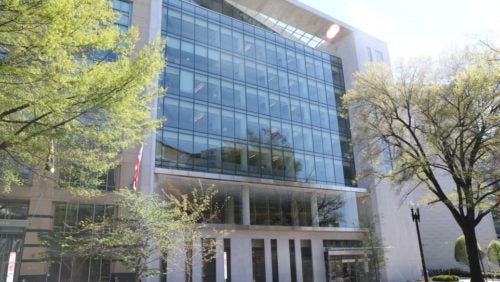Foreign Investment Risk Review Modernization Act: Challenges and Projections
October 29, 2018 by Editor

By: Rodolfo Martinez-Don
On September 25th, the Center for Strategic and International Studies (CSIS) hosted an event on the Foreign Investment Risk Review Modernization Act (FIRRMA). A panel of private and public sector professionals discussed the act and highlighted three main challenges associated with the regulation: (1) the regulation’s language and a government agency’s ability to properly enforce the regulation, (2) the exclusion of certain countries from the process, and (3) international cooperation. Overall, the panel stressed that technology and national security concerns represented a growing need for international attention towards global security.
Background:
FIRRMA was signed into law on August 13 and comes as a response to perceived changes in the national security environment that have increased the risks created by some forms of foreign investment. Its primary purpose is to reform the current operations of the Committee on Foreign Investment in the United States (CFIUS) regarding the national security screening process for foreign investment in the United States. For additional information on FIRRMA click here.
Language of Regulation and Enforcement Capability
The first challenge discussed by the panelists regarded a provision in FIRRMA that stipulates that the Department of Commerce must channel “emerging and foundational technologies” through export controls as part of the national security screening process for foreign investment. The panelists pointed out that the regulation does not explicitly define “emerging and foundational technologies,” but that the intended meaning was broader than “controlled technologies” (i.e. high performing computer equipment). The panelists concluded that the term refers to defense technologies.
The panelists stated that the increasingly amorphous boundary between defense and non-defense technologies makes it difficult for a government agency, without technical expertise, to properly define “emerging and foundational technologies.” For example, regarding robotics, the panel points out that without recruiting top talent from the technology sector, a government agency would not have the capability to decide what within the field of robotics would meet this definition.
Excluding Certain Foreign Countries
The Chairman of the Armed Services Committee, Jeb Hensarling, made it clear that the lack of a “blacklist” of countries in FIRRMA was a product of legislative compromise and expressed that he personally would have included countries of concern by name. In particular, the Chairman and the panelists were worried about foreign investment from China.
Overall, panelists expressed their concerns that Chinese firms, when investing abroad, extract technology and intellectual property from foreign nations solely for national technological advancement. On this issue, it remains to be seen how effective FIRRMA will be in safeguarding American technologies from “predatory” foreign investment.
International Cooperation
The final challenge discussed by the panel dealt with international cooperation and the need for increased global cooperation and information sharing. The fact that many other nations are in the process of strengthening their investment screening systems highlights the need for cooperation among countries with sensitive technologies. By cooperating internationally, countries can better assess foreign investment deals that threaten one or more country’s national security by collectively analyzing their country’s experience with a foreign investor.

